ATTLEE
PROFILES IN POWER
General Editor: Keith Robbins
ELIZABETH I
Christopher Haigh
RICHELIEU
R. J. Knecht
GUSTAVUS ADOLPHUS (2nd Edn)
Michael Roberts
OLIVER CROMWELL
Barry Coward
PETER THE GREAT (2nd Edn)
M. S. Anderson
JOSEPH II
T. C. W. Blanning
NAPOLEON
Geoffrey Ellis
ALEXANDER I
Janet M. Hartley
DISRAELI
Ian Machin
JUREZ
Brian Hamnett
CAVOUR
Harry Hearder
NAPOLEON III
James McMillan
FRANCIS JOSEPH
Steven Beller
ATATRK
A. L. Macfie
LLOYD GEORGE
Martin Pugh
HITLER
Ian Kershaw
CHURCHILL
Keith Robbins
ATTLEE
Robert Pearce
NASSER
Peter Woodward
DE GAULLE
Andrew Shennan
FRANCO
Sheelagh Ellwood
MACMILLAN
John Turner
KENNEDY
Hugh Brogan
CASTRO (2nd Edn)
Sebastian Balfour
First published 1997 by Addison Wesley Longman Limited
Published 2014 by Routledge
2 Park Square, Milton Park, Abingdon, Oxon OX14 4RN
711 Third Avenue, New York, NY 10017, USA
Routledge is an imprint of the Taylor & Francis Group,
an informa business
Addison Wesley Longman Limited 1997
The right of Robert Pearce to be identified
as author of this Work has been asserted by
him in accordance with the Copyright,
Designs and Patents Act 1988.
All rights reserved; no part of this publication may be reproduced, stored in a retrieval system, or transmitted in any form or by any means, electronic, mechanical, photocopying, recording, or otherwise without either the prior written permision of the Publishers or a licence permitting restricted copying in the United Kingdom issued by the Copyright Licensing Agency Ltd., 90 Tottenham Court Road, London W1P 9HE.
ISBN 978-0-582-25690-3 (pbk)
British Library Cataloguing-in-Publication Data
A catalogue record for this book is
available from the British Library
Library of Congress Cataloging-in-Publication Data
Pearce, R. D. (Robert D.)
Attlee / Robert Pearce.
p. cm. (Profiles in power)
Includes bibliographical references and index.
ISBN 0-582-25691-7 (hardcover). ISBN 0-582-25690-9 (paper)
1. Attlee, C. R. (Clement Richard), 18831967. 2. Great Britain Politics and government 20th century. 3. Prime ministers Great Britain Biography. 4. Labour Party (Great Britain) Biography.
I. Title. II. Series: Profiles in power (London, England)
DA585A8P43 1997
941.0854092-dc21
Set by 8 in 10

/12pt New Baskerville
.......
CONTENTS
The 1935 General Election and the
Leadership Contest
Attlees Governments, 194551:
Domestic Affairs
Attlees Governments, 194551:
Foreign and Imperial Affairs
Anti-Climax: Opposition and After,
195167
.......
Every work of history is a collaborative venture, and I therefore wish to thank the historians, mostly unknown to me personally, from whose work I have profited. Some of them, but alas not all, are mentioned by name in the references and bibliography. My interest in Attlee goes back over twenty years and has occasioned numerous archival forays on his papers and those of his contemporaries. Thanks go to the many librarians and archivists who have aided my work, and especially to those at the Bodleian, the British Library and Churchill College. I am grateful to Bill Golant, for first stimulating my interest in Attlee, as in so much else, to Kenneth Harris, for advice on sources, and to John Swift, for acting as a diligent research assistant during the early part of the work. I am also appreciative of the stimulating comments provided by the general editor of this series, Professor Keith Robbins, and the staff at Addison Wesley Longman. As so often in the past, Martin Anthony and Roger Butler generously provided accommodation and hospitality during my trips to London and Oxford respectively. My greatest debt of all is to Janet Copeland, to whom this book is dedicated.
Lancaster,
July 1996
FOR JANET
.....
INTRODUCTION: IMAGES OF
ATTLEE
Questioner: Lord Attlee, looking back over your massive career in the Labour Party in terms of statesmanship, what do you think history will judge you best for?
Attlee: I dont know.1
Clement Richard Attlee (18831967) was the longest-serving leader of any major political party in twentieth-century Britain: he led Labour for twenty years. In addition, he was Prime Minister, from 1945 to 1951, during a period of unparalleled and highly controversial reform in domestic, foreign and imperial affairs: the welfare state was completed, a substantial portion of industry was nationalised, the Cold War started and the Empire began to be transformed into the multiracial Commonwealth. Without doubt he was one of the most successful figures in Labour history and one of the most significant in modern British politics. Yet he is also one of the most inscrutable.
Most students feel ambivalent about Attlee. This is partly because he was deliberately elusive. He was unwilling, or perhaps unable, to open himself up to questioners, his three stock answers being Yes, No, and I dont know, while his memoirs, As It Happened, constitute one of the least revealing autobiographies ever written. He was virtually a stranger to many of his colleagues, some of whom misjudged him entirely. For instance, while Attlee was an agnostic, who could not believe in the mumbo-jumbo of religion, several figures believed him to be a convinced Christian. Arthur Moyle, his PPS, once remarked that he had worked for that man for twenty years, yet still know nothing about him.2 Into his impenetrable silences could be read delphic understanding, personal inadequacy or anything in between leaving plenty of room for misunderstanding. Hence it is not surprising that several Clem Attlees stalk the pages of modern history.
There is Attlee meek and mild, the modest man who, as Churchill quipped, had plenty to be modest about. He was the shy and retiring sort who did not angle and plot for political advancement, and nor did he particularly deserve it. He had greatness (of a sort) thrust upon him by a series of lucky breaks and by the unsuitability of his rivals. Bathos might almost have been his middle name: determined to make a trumpet sound like a tin whistle, as Nye Bevan believed, he brought to the fierce struggle of politics the tepid enthusiasms of a lazy summer afternoon at a cricket match.3
There are several variations on this theme, in all of which Attlee is so colourless, characterless or self-effacing that he disappears as a human being. In the first, he is simply a void. The classic exposition of this came in Angus Wilsons short story The Wrong Set: An empty taxi drove up to No. 10 and Mr Attlee got out.4 He may have attended, or even chaired, numberless meetings, but it is almost as if their official records have been doctored to omit all mention of him. Similarly, he may have been a member of the Simon Commission on Indian constitutional reform, appointed in 1928, but one may search the memoir of his fellow commissioner Edward Cadogan in vain for any acknowledgement of this fact. He was often next to invisible. At best, he was a small man in every respect: drab, dreary and little, according to the head of the Foreign Office during the Second World War.5


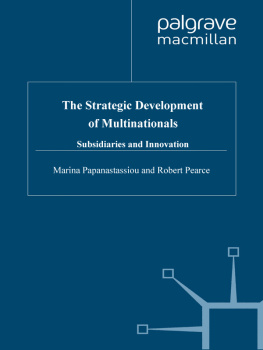
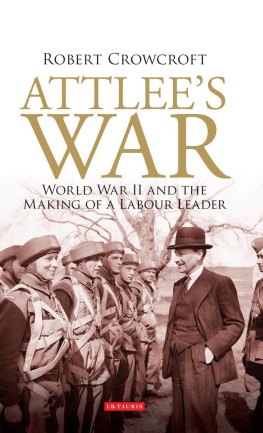
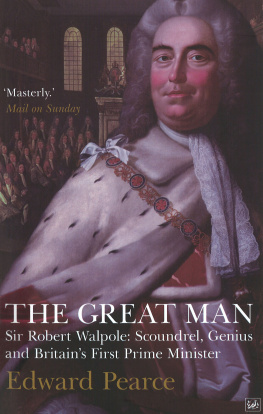
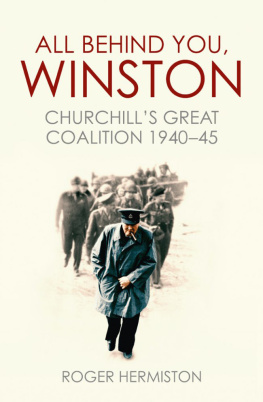
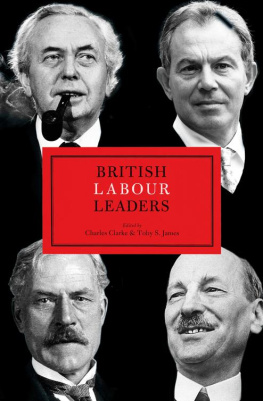
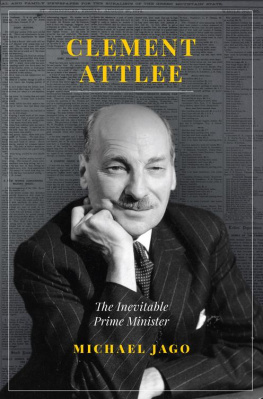
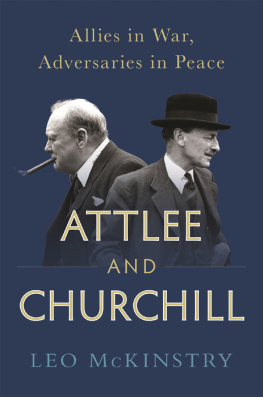

 /12pt New Baskerville
/12pt New Baskerville